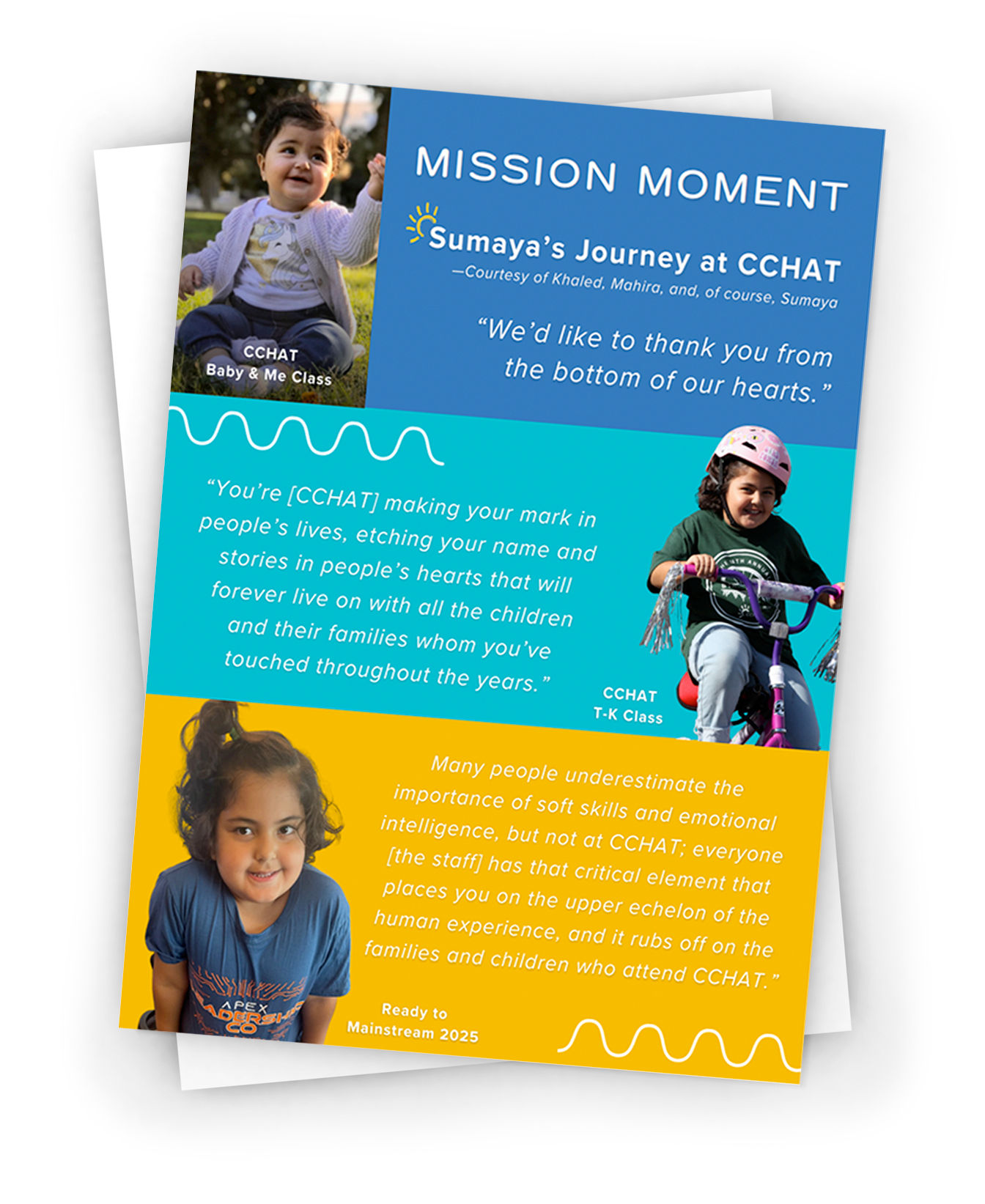May Is Better Hearing & Speech Month

May is officially Better Hearing & Speech Month – an annual celebration designed to:
- Raise awareness of the many communication challenges that those who are deaf and hard of hearing face on a daily basis
- Highlight improvements across technology, and educational approaches designed to help bridge this communication gap
Both of these goals are worthwhile, which is why CCHAT proudly celebrates Better Hearing & Speech Month every year. Below are 4 additional reasons why you should consider celebrating this annual event as well.
1. Hearing Loss Is More Common Than Many Realize
In the US, nearly 12,000 babies are born with permanent hearing loss every year (or more than one new baby every hour). In fact, hearing loss is one of the most common congenital birth defects in the country. And thousands of more babies eventually lose their hearing later on in childhood.
Takeaway 1: If you suspect your child may be deaf or hard of hearing – you are not alone.
2. Early Hearing Loss Detection Is Essential
Hearing is critical to healthy childhood development. Those who are deaf and hard of hearing are at risk of falling behind in the absence of intervention.
Fortunately, babies can be screened for potential hearing loss even when they’re just a few days old. This early diagnosis allows parents, audiologists and teachers to pursue the most appropriate corrective treatment.
Takeaway 2: It is never too early to have your child’s hearing tested. The sooner you do – the better.
3. Permanent Hearing Loss Isn’t Necessarily “Permanent”
Thanks to recent technological advancements, there now exist a host of assistive hearing solutions that can help your child receive, process and understand sound:
- Hearing aids are the most popular – especially among those with mild hearing loss
- Cochlear implants are best suited for those with severe hearing loss (including children who are completely deaf from birth)
When managed appropriately and used consistently, these technologies allow children who are deaf and hard of hearing learn to listen and talk. Moreover, not using hearing assistive technology can actually negatively impact children’s growth as the gap widens between them and their hearing peers. Over time, academic achievement, emotional development and self-confidence can all begin to suffer.
Takeaway 3: Learning that your child is deaf or hard of hearing can be a heartbreaking experience for many parents. This is especially true if both parents can hear, which applies in 90% of all cases where a child is born with some type of hearing loss.
But early diagnoses is only the beginning.
4. Education Is THE Foundation for Lifelong Success
If your child is diagnosed with hearing loss, using assistive technology can make a world of difference.
But this alone is not enough.
Many children who are deaf and hard of hearing must consciously learn the skills that their hearing peers master naturally and organically. This process is similar to how babies can pick up multiple languages with zero effort – while adults struggle to master just a single foreign language (later in life).
It’s doable, but requires far more work.
Among children who are deaf and hard of hearing, overcoming these hurdles is the role of listening and spoken language (LSL) programs designed to make the learning process easier and more natural so that children can master learning to listen and speak without relying on sign language.
Takeaway 4: Healthy language development is not automatic. For children who are deaf and hard of hearing, it is important to guide their progress with educational tools and curricula that are appropriate for their specific type and level of hearing loss.
How We Celebrate Better Hearing & Speech Month at CCHAT
The ultimate goal of Better Hearing & Speech Month is to raise awareness of the key takeaways above, and at CCHAT, we take this mission even further.
Learning to communicate is important. Our goal is to equip children who are deaf and hard of hearing with the essential social, academic and cognitive skills they need to thrive throughout their lives. And since opening our doors in 1996, we have succeeded in this mission – helping countless children matriculate into mainstream schools along with their hearing peers.
However, this is a time-consuming and resource-intensive process that requires:
- On-site diagnostic testing by licensed audiologists
- Carefully designed curricula by trained instructors
- Multilingual support for students and family members
- Coordination with audiological and healthcare providers
Delivering these essential services requires the ongoing support of our community. This is because it costs an average of $35,000/year for every student in our program
Some of our financing comes from local school districts and early start programs. And the remainder (about $10,000/child) comes from fundraising efforts throughout the year.
Better Hearing & Speech Month is meant to raise awareness and help children who are deaf and hard of hearing overcome key communication challenges. If you would like to join us in our mission of helping every child with hearing loss reach his or her full potential, please support us with a donation.
Your contribution will make an invaluable difference in the lives of our students. And because of our non-profit 501(c) status, all charitable donations are 100% tax-deductible.





%20(1).png)








































.png)





